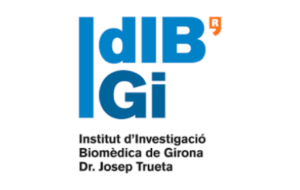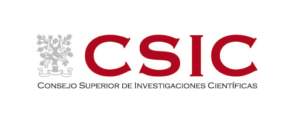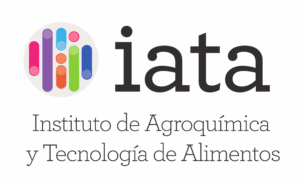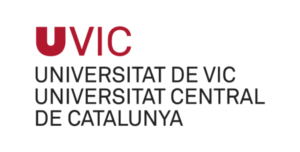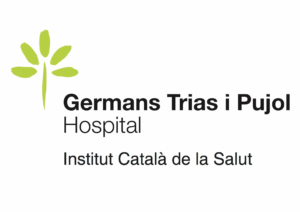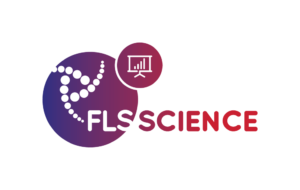Vall d’Hebron Institute of Research (VHIR) is a public sector institution that promotes and develops the research, innovation and biosanitary teaching of the Vall d’Hebron Barcelona Hospital Campus. Through the excellence of its research, they identify and apply new solutions to the health problems of society and contribute to spread them around the world. The research activities of the centre are divided into 8 different areas and over 60 research groups. One of them is the Physiology and Pathophysiology of the Digestive Tract group, that studies, among other research lines, the microbiome.
More info: www.vhir.org
Girona Biomedical Research Institute (IDIBGI, 2005) was founded as the Doctor Josep Trueta Private Foundation in 1995. Its aim is to promote, develop, manage and disseminate biomedical research in the province of Girona.It has been a public organisation since 2008, when the Catalan Government joined the IDIBGI as a member of its governing bodies, and it is now an affiliated centre within the Government’s CERCA programme. The IDIBGI is made up of research groups from the Doctor Josep Trueta University Hospital in Girona and from the University of Girona (UdG), the Institute for Diagnostic Imaging (IDI), the Catalan Institute of Oncology (ICO) and the Primary Care Institute (IAP)/Catalan Health Institute of Girona.
More info: www.idibgi.org/en
The Spanish National Research Council (CSIC) is the largest public institution dedicated to research in Spain and the third largest in Europe. Belonging to the Spanish Ministry of Science, Innovation and Universities through the Secretary of State for Universities, Research, Development and Innovation, its main objective is to develop and promote research that will help bring about scientific and technological progress, and it is prepared to collaborate with Spanish and foreign entities in order to achieve this aim. CSIC plays an important role in scientific and technological policy, since it encompasses an area that takes in everything from basic research to the transfer of knowledge to the productive sector. Its research is driven by its centers and institutes, which are spread across all the autonomous regions. One of these CSIC centers is the IATA.
With over 50 years of experience, the Institute of Agrochemistry and Food Technology, also known by its acronym IATA is an international reference in the field of food research and innovation. Located in Valencia, the IATA maintains scientific collaborations with research groups in more than a hundred countries to improve food production processes in environmentally sustainable ways focusing on food safety and quality as well as health benefit for consumers. The research that the IATA conducts covers 4 main areas: food and process innovation, food safety and preservation, diet microbiota and health, food biotechnology. The IATA is committed not only to research but also to society, improving and creating foods for the future. More info: www.iata.csic.es/en
UVic-UCC is a public university under private management. It’s commitmed to economic and social development of the surrounding region and Catalonia, through teaching, research and knowledge transfer, imbued with a distinctive European and international vocation. There is twenty-one research groups, three research and knowledge transfer centres and nine research chairs carry forward UVic-UCC research activity, with the aim of generating knowledge and transferring it to society. The universal scope of UVic-UCC science and training builds on the present-day reality of Catalan society – with the Catalan language as its shared symbol of identity – and Europe as a unifying force. UVic-UCC considers international exchange programmes and internships abroad to be essential, and promotes joint academic and research projects with other universities and institutions.
More info: www.uvic.cat/en
The Spanish National Cancer Research Centre (CNIO) is one of the world’s leading cancer research centres. Almost 400 researchers at the forefront of global science, strive to better understand the underlying mechanisms of cancer and to find ways to combat it. The ultimate goal of the CNIO is to advance knowledge and foster translation of scientific breakthroughs into novel and more effective ways to prevent, diagnose and treat cancer. As a comprehensive Cancer Centre, the CNIO integrates both basic and translational research. We also have an active innovation programme that guarantees the transfer of knowledge, from our scientific discoveries to the market and bedside and to society as soon as possible.
More info: www.cnio.es/ing
Germans Trias i Pujol Hospital is a public center that provides high-quality healthcare to the 800,000 people living in the Barcelonès Nord and the Maresme, as well as some citizens of other Catalan territories in the case of certain pathologies, in which the hospital is Reference for up to 1,200,000 inhabitants. The hospital is managed by the Northern Metropolitan Territorial Management of the Catalan Health Institute (ICS), which is also responsible for primary care in the Barcelonès Nord, Maresme, Vallès Oriental and Vallès Occidental. Germans Trias is at the same time a basic general hospital for more than 200,000 people in Badalona and several municipalities in the surrounding area. All this is possible thanks to the intense and skilled work of some 2,500 healthcare professionals and non-healthcare workers.
More info: www.hospitalgermanstrias.cat/en
FLS-Science aims at delivering high quality educational programs on a variety of medical and scientific topics related to HIV and infectious diseases. Medicine and science are areas in constant evolution, requiring continuous learning and knowledge updates. FLS-Science organizes courses, seminars and workshops that guarantee a high level of education and generate a positive environment for interaction, knowledge transfer and continuous learning. FLS-science Scientific Panel is composed of renowned healthcare professionals and researchers at international level. Their educational activities target healthcare professionals but also researchers, academia and representatives from educational, medical and pharma institutions. They also promote outreach activities to transfer the acquired scientific knowledge to the society.
More info: www.fls-science.com


